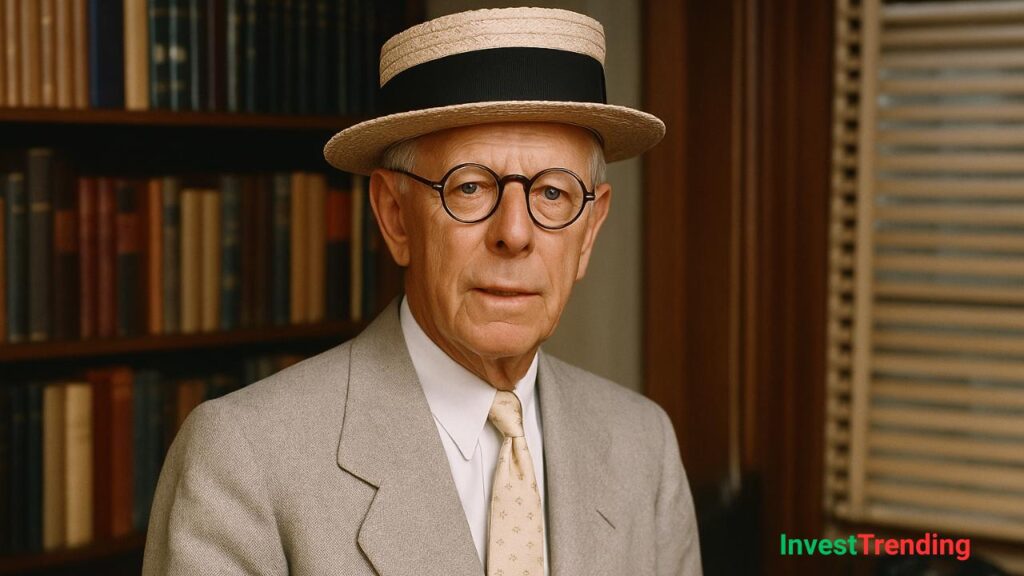
Nithin Kamath’s Success Story: From Trading to Building India’s Biggest Brokerage Firm
Introduction
Nithin Kamath is a name synonymous with revolutionizing stock trading in India. As the founder and CEO of Zerodha, he transformed the Indian brokerage landscape by offering a discount brokerage model, making trading accessible and affordable. This article takes a deep dive into his life, struggles, strategies, and how he became one of India’s most successful traders and entrepreneurs.
Early Life and Education
- Born: 5th October 1979, Shivamogga, Karnataka, India
- Education: Engineering in Telecommunication from Bangalore Institute of Technology
Nithin Kamath’s journey began in a middle-class family, where financial freedom was a distant dream. During his college days, he got exposed to stock markets and started trading using a small capital. However, like many first-time traders, he suffered losses before understanding the market intricacies.
Entry into the Stock Market
First Steps in Trading
- Nithin started trading stocks while in college, initially making small profits.
- In 2001, he lost almost all his money in the dot-com bubble crash.
- To recover, he worked at a call center at night while trading during the day.
- Over time, he developed a disciplined trading approach, focusing on technical analysis.
Building Expertise
- Nithin worked as a sub-broker for Reliance Money, learning the brokerage business.
- He started managing portfolios of high-net-worth individuals (HNIs).
- After years of trading experience, he realized the inefficiencies of traditional brokerage firms.
The Birth of Zerodha
Why Zerodha?
- Traditional brokers charged high commissions, making trading expensive.
- There was a lack of transparency and advanced technology in trading platforms.
- Nithin wanted a cost-effective and technology-driven brokerage solution.
Foundation and Early Struggles
- In 2010, Nithin Kamath and his brother Nikhil Kamath founded Zerodha.
- The name “Zerodha” is a combination of “Zero” and “Rodha” (barriers in Sanskrit).
- The firm started with a discount brokerage model – zero brokerage on equity delivery and flat fees for other segments.
- Initially, there was resistance from traditional brokers and traders skeptical about the new model.
- By offering transparency, technology, and low costs, Zerodha gained traction among retail traders.
How Zerodha Changed the Indian Stock Market
| Feature | Traditional Brokers | Zerodha |
|---|---|---|
| Brokerage Charges | High | Low (Flat Rs. 20 per trade) |
| Transparency | Low | High |
| Trading Platform | Outdated | Advanced (Kite) |
| Accessibility | Limited | Available to all |
Key Milestones
- 2013: Launched Varsity, a free educational platform for stock market learning.
- 2015: Launched Kite, a powerful and user-friendly trading platform.
- 2016: Introduced Coin, a direct mutual fund investment platform.
- 2020: Became India’s largest brokerage firm with over 10 million clients.
Investment and Trading Strategies of Nithin Kamath
1. Risk Management
- Never risk more than 1-2% of the capital in a single trade.
- Focus on capital preservation rather than chasing profits.
2. Long-Term Vision
- Invest in businesses that generate long-term value.
- Avoid speculation-driven investments.
3. Technology and Automation
- Leveraging technology to eliminate inefficiencies.
- Use of algo-trading to make data-driven decisions.
4. Diversification
- Invest across different asset classes.
- Avoid putting all capital in a single trade or sector.
Challenges Faced by Nithin Kamath
1. Initial Struggles with Zerodha
- Competing with established brokerage firms.
- Gaining trust from traders and investors.
- Limited marketing budget.
2. Market Crashes and Losses
- Faced significant losses during market downturns.
- Adapted by changing strategies and implementing better risk management.
3. Regulatory Challenges
- Constantly adapting to SEBI’s evolving regulations.
- Ensuring compliance while maintaining affordability for users.
How Nithin Kamath Makes Money?
1. Brokerage Commissions
- Though equity delivery is free, other segments like intraday and F&O have flat fees.
2. Subscription-Based Services
- Premium services like Streak (algo-trading) and Sensibull (options trading).
3. Investments in Startups
- Zerodha invests in fintech startups through Rainmatter, their investment arm.
4. Mutual Funds and Advisory
- Earns from Coin, the direct mutual fund investment platform.
Current Status and Achievements
- Net Worth: Over ₹25,000 Crore ($3 Billion) (as of 2024).
- Zerodha: India’s largest stock brokerage with more than 10 million users.
- Awards: Recognized as an influential entrepreneur in fintech.
- Philanthropy: Actively supports financial education and startup funding.
Lessons from Nithin Kamath’s Journey
- Start Small, Think Big: Every great business starts with a small idea.
- Risk Management is Key: Avoid large losses by managing risk effectively.
- Technology is the Future: Leveraging tech can give a competitive edge.
- Educate Before You Invest: Knowledge is the foundation of successful trading.
- Be Adaptable: Markets change, and so should your strategies.
Conclusion
Nithin Kamath’s journey from a call center employee to the founder of India’s largest brokerage firm is truly inspiring. His vision of democratizing stock trading through low-cost, tech-driven solutions has transformed how Indians invest. His story is a testament to the power of resilience, innovation, and smart investing.
For anyone looking to succeed in trading and investing, learning from Nithin Kamath’s strategies and principles can be invaluable.
FAQs
1. How did Nithin Kamath start his trading journey?
He started trading in college, lost money in the 2001 crash, worked at a call center, and gradually built his expertise.
2. What makes Zerodha different from other brokers?
Zerodha offers low-cost trading, a user-friendly platform, and transparent policies.
3. What are Nithin Kamath’s investment strategies?
Focuses on risk management, long-term vision, technology, and diversification.




Pingback: Ramesh Damani Investing: Strategies, Success Story & Wealth
Pingback: Shankar Sharma: Predicted India’s Market Booms and Crashes
Pingback: Manish Dhawan: India’s Options Trading Expert InvestTrending